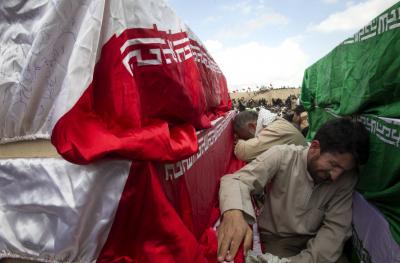Lucknow | June 19, A father’s dread, a journalist’s near escape, and a lingering sense of duty, these threads weave the story of Ravish Zaidi, a Lucknow native working in Iran, who narrowly avoided death by seconds after a missile struck his workplace.
For Ameer Abbas Zaidi, Ravish’s father, the past 24 hours have been a blur of panic, disbelief, and reluctant pride. The family first got a whiff of something wrong when they were unable to reach Ravish on the phone. Then came the confirmation, news broke of a missile attack on the media building where Ravish works.
What made the timing harder was its cruel coincidence. The bombing happened on the death anniversary of Ravish’s mother, adding emotional weight to an already harrowing moment.
“As a father, my heart just froze,” said Zaidi, speaking from his home in Lucknow.
“We were trying his number again and again. And then we saw the news flash. The building was bombed. That’s all we knew.”
Seconds That Changed Everything
Ravish, a journalist stationed in Iran for over 15 years, had briefly returned to India after his wife passed away last September. But work called him back to Iran, where he resumed his job with a local news channel in one of the country’s major cities.
On the day of the attack, Ravish stepped out of his office, seconds before the missile hit. The explosion gutted parts of the building, but spared his life. He later returned to the damaged site, not to flee, but to cover the news.
“He just told me calmly, ‘Humari kismat mein shahadat nahi thi… duty kar rahe hain’,” Zaidi recalled. “Martyrdom wasn’t written in my fate. I’m doing my duty.”
No Plans to Return Yet
Even after the attack, Ravish has no plans to leave Iran. According to him, life in the major cities feels far from a war zone. Streets are calm, people go about their routines, and the public shows remarkable resilience. He spoke warmly about Iranian hospitality and the beauty of the land, refusing to be defined by the incident.
But for his father back in Lucknow, the distance between rational calm and emotional fear feels immeasurable.
“He says he’s safe, but the airports are shut. So he can’t return even if he wanted to,” Zaidi added.
Bravery in the Line of Fire
While many would call Ravish’s decision reckless, others see it as courage, a quiet, unshaken belief in the importance of bearing witness, even under fire. As a journalist, his lens is his shield. But for a father, every headline Ravish files from the heart of a crisis zone feels like a bullet dodged.
“I’m proud of him. But also helpless,” Zaidi said. “He’s doing what he believes in, but all I want is to hear his voice every day, just to know he’s okay.”
As conflict in the region simmers, Ravish Zaidi’s story is a stark reminder of the invisible risks journalists take in the line of duty, and the silent prayers their families offer, far from the camera glare.





